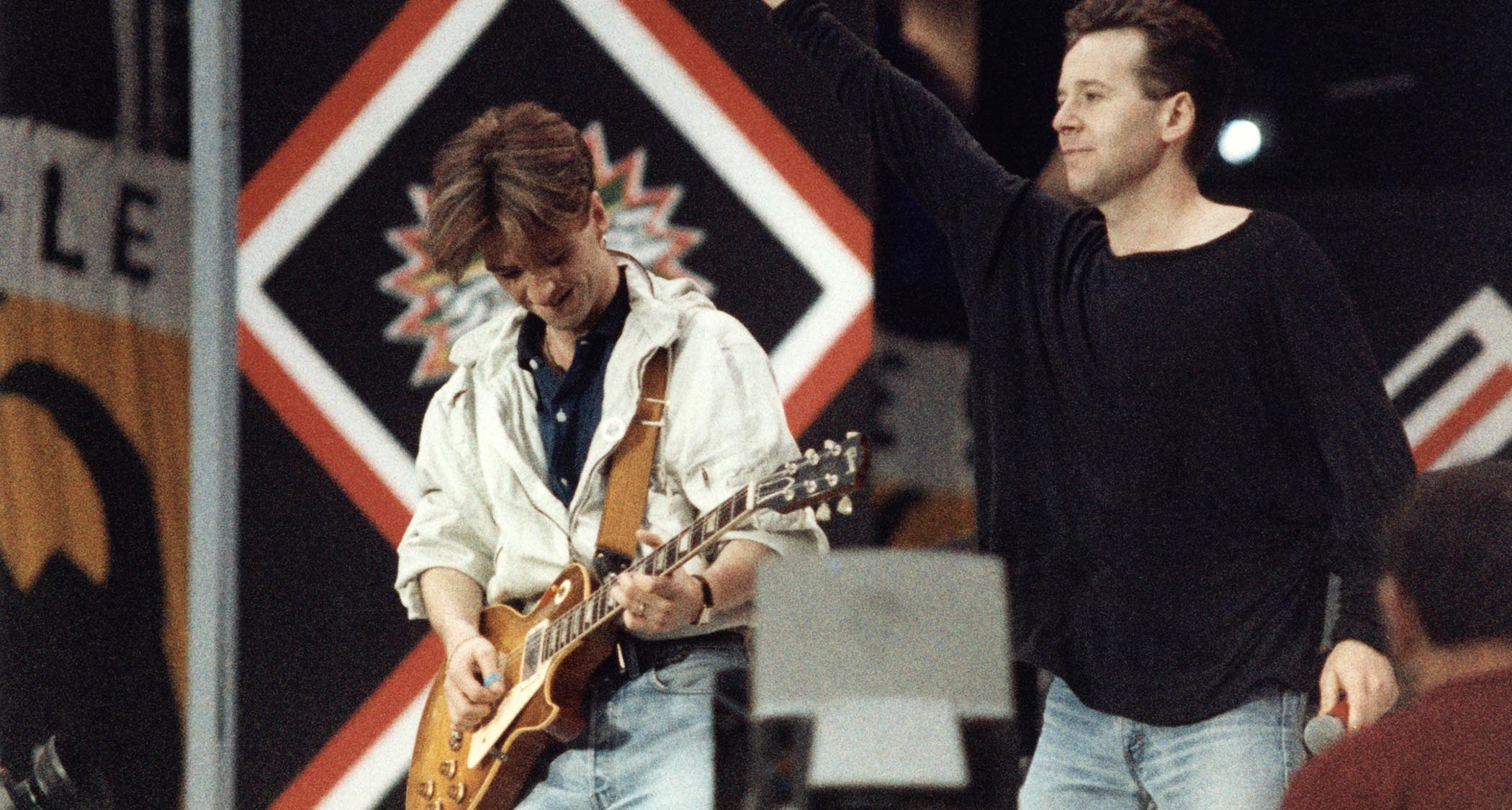
With the huge success of Don’t You (Forget About Me) taken from the soundtrack of the 1985 John Hughes film The Breakfast Club – and their subsequent album, Once Upon a Time – Simple Minds became a household name in the U.S. in 1985, with four subsequent Top 10 singles pulled from the album, including Alive and Kicking and Sanctify Yourself.
The band – still a household name – have continued to enjoy success around the world since those heady times and are scheduled to tour North America in May and June. Guitarist Charlie Burchill has fond memories of the era.
You brought in Jimmy Iovine to produce Once Upon a Time. What was the thinking behind that, and what did he bring to the process?
“We were really feeling, as a band, that we were ready to start working in America. We’d already released six albums that had sold really well around the world, so we thought we’d try to break the States, and he was very much the man to help us with that.
“He’s a real ‘song’ guy – if some of our ideas were too esoteric, he could really focus on the essentials and help pull us in. I have to give equal credit to Bob Clearmountain, who co-produced and engineered. They were both full of enthusiasm and great fun to work with. It was a very quick process – about four weeks to do everything.”
There were only eight tracks on the album, half of which became hits. Was that the plan when you were in the middle of the recording process?
“We were definitely making a statement by only putting eight tracks on the record – as if we were saying, ‘This is what we’re offering and we think it’s really good,’ you know? We had no plans for any songs to become singles – that was a decision that we came to once we’d finished, and certain songs seemed like obvious contenders.”
It seemed strange that Don’t You wasn’t included, given its massive success. Didn’t the record company put pressure on you to include it?
“Oh yeah, big time. I wish they had won, looking back. We were digging our heels in, but in retrospect, we often ask ourselves what the fuck were we thinking? [Laughs] It was recorded at the same time as the album anyway, and obviously sounded like it should’ve been on there, but I guess we were a bit arrogant and stupid. [Laughs]”
The success of Don’t You and the album must have been transformative for you as a band.
“It marked a huge change for us. We actually did Live Aid from Philadelphia as we were Number 1 in the States at the time, and we were spending so much time in America.
“In fact, we reached a point where we started to think that we’d better focus a bit more on Europe as we didn’t want to lose our support there, having spent so much time away. The financial rewards were great, of course. I bought loads of guitars, including ’50s and ’60s Fenders and Gretsches, which I’ve still got.”
Although there aren’t a lot of overt ‘lead guitar’ moments, the album is actually swamped with layered guitars. What gear did you use to make the album?
“I’m glad you noticed that. It was mainly a Strat and a Gretsch White Falcon. My amps at the time were a Marshall JCM900 and a Roland JC-120 Jazz Chorus. My effects were also by Roland; I had three 555 Space Echoes and a CE-1 chorus pedal.
“I was deliberately staying away from the sound of humbuckers. I needed a cleaner tone. When you have keyboards in a band you have to try to carve out your own sonic space, and it seems easier with a cleaner sound.”
How do you feel looking back at the album?
“We’re always making new music, so we don’t really look backwards. I think it’s one of the most focused albums we made. Whenever I hear any of the tracks, I think they haven’t really dated, and sonically, it sounds fantastic. The only regret I have is that we didn’t include Don’t You on it! [Laughs]”
- This article first appeared in Guitar World. Subscribe and save.







